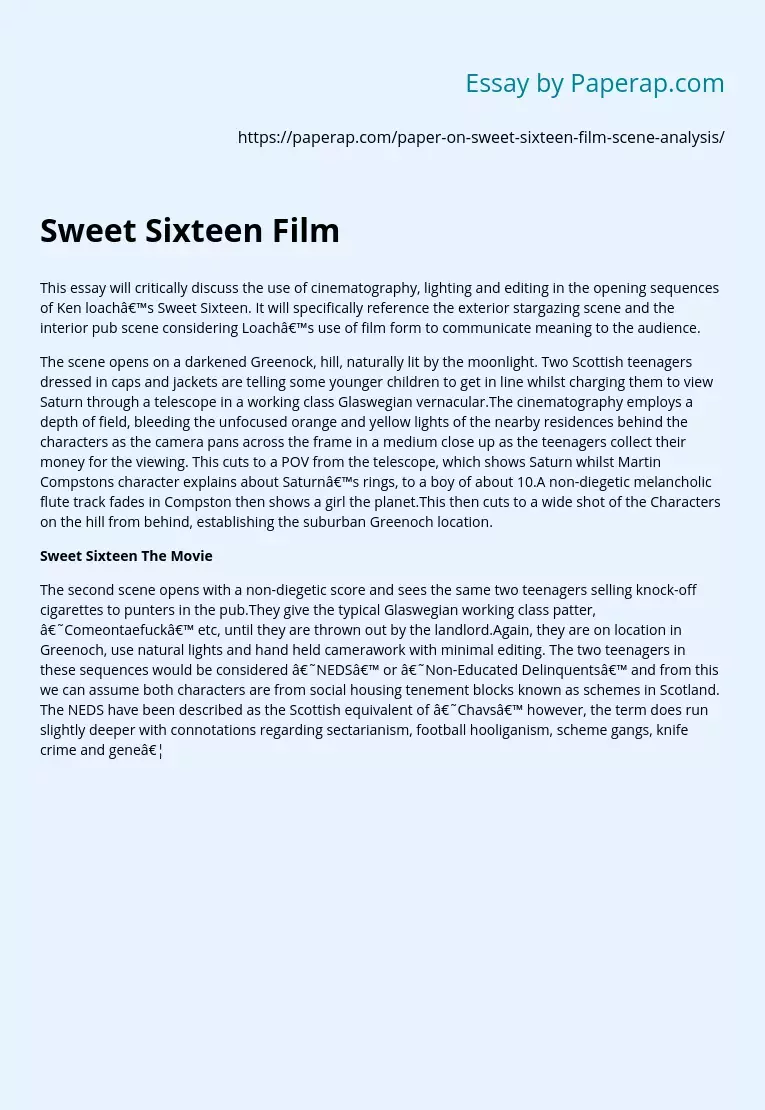Sweet Sixteen Film
This essay will critically discuss the use of cinematography, lighting and editing in the opening sequences of Ken loach’s Sweet Sixteen. It will specifically reference the exterior stargazing scene and the interior pub scene considering Loach’s use of film form to communicate meaning to the audience.
The scene opens on a darkened Greenock, hill, naturally lit by the moonlight. Two Scottish teenagers dressed in caps and jackets are telling some younger children to get in line whilst charging them to view Saturn through a telescope in a working class Glaswegian vernacular.
The cinematography employs a depth of field, bleeding the unfocused orange and yellow lights of the nearby residences behind the characters as the camera pans across the frame in a medium close up as the teenagers collect their money for the viewing. This cuts to a POV from the telescope, which shows Saturn whilst Martin Compstons character explains about Saturn’s rings, to a boy of about 10.A non-diegetic melancholic flute track fades in Compston then shows a girl the planet.
This then cuts to a wide shot of the Characters on the hill from behind, establishing the suburban Greenoch location.
Sweet Sixteen The Movie
The second scene opens with a non-diegetic score and sees the same two teenagers selling knock-off cigarettes to punters in the pub.They give the typical Glaswegian working class patter, ‘Comeontaefuck’ etc, until they are thrown out by the landlord.Again, they are on location in Greenoch, use natural lights and hand held camerawork with minimal editing.
The two teenagers in these sequences would be considered ‘NEDS’ or ‘Non-Educated Delinquents’ and from this we can assume both characters are from social housing tenement blocks known as schemes in Scotland. The NEDS have been described as the Scottish equivalent of ‘Chavs’ however, the term does run slightly deeper with connotations regarding sectarianism, football hooliganism, scheme gangs, knife crime and gene…
Sweet Sixteen Film. (2019, Dec 05). Retrieved from https://paperap.com/paper-on-sweet-sixteen-film-scene-analysis/

